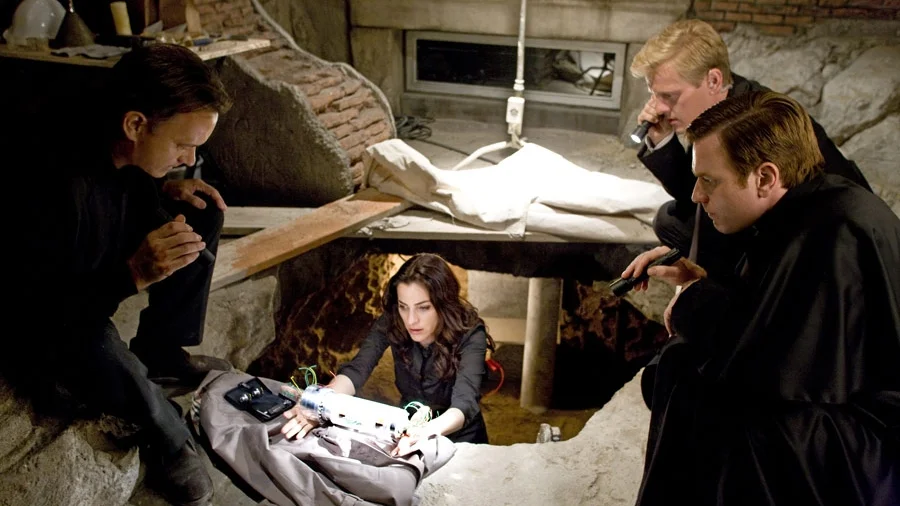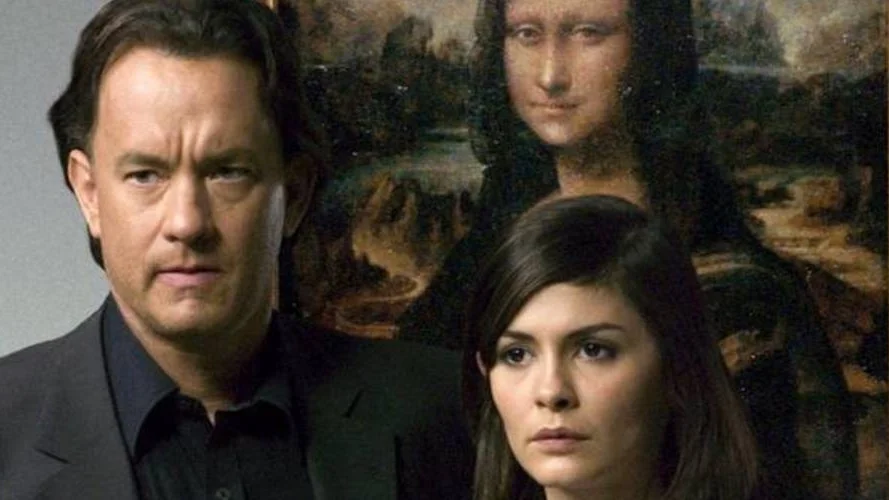Only the Worthy: Ron Howard's Langdon Trilogy
In 2003, Dan Brown’s novel The Da Vinci Code took the world by storm, presenting a conspiracy thriller centered in the underworld of the Catholic church. The book was heavily criticized by the Catholic church and by the time Ron Howard directed the film adaptation in 2006, some within the church were calling for a boycott and several countries banned the movie outright. That didn’t stop the film from making enough money to be followed by two sequels. Neither of those had quite the scandal behind them, though. As Robert Langdon’s adventures progressed, they became more traditional puzzle-thrillers with their religious themes moved to the background.
The Da Vinci Code, both the book and the adaptation, isn’t afraid to tell you what it thinks about religion. The plot revolves around symbologist Robert Langdon trying to find the Holy Grail, the true source of the church’s power, before the church can destroy it. It’s revealed that the Grail refers to the bloodline of Mary Magdelene and Jesus’ secret love, proof that the Son of God was more man than the church wants to admit. Langdon finds Magdelene’s tomb but keeps it secret so the Catholic church isn’t exposed to be founded on lies.
The church is unappreciative and remains antagonistic, even as they ask Langdon for his help, in Angels & Demons. The four preferiti, Cardinals most likely to be voted Pope, are kidnapped and all evidence points to the Illuminati. Langdon and CERN scientist Vittoria Vetra follow a set of clues to find the Cardinals and the anti-matter bomb that’s been set to blow at midnight. The motivation of the Illuminati, formed by scientists frustrated by the church’s unwillingness to adapt to scientific truths, sets the film up as a battle between science and religion, age old enemies. At the end of the day, though, the Illuminati is only a red herring to cover up the murder of the Pope by his second in command who then set up the puzzle to buy time to get himself elected Pope. The twist draws much of the attention away from the themes set up earlier in the movie, leaving the audience without the resolution they expect.
Inferno solves that problem by not even bothering to set up a theme in the beginning. The church isn’t the villain for once. In fact, it’s barely even mentioned. Langdon wakes up with a bad case of amnesia to discover that a billionaire has promised to unleash an apocalyptic virus on the earth in order to reduce overpopulation and climate change. Unfortunately this Thanos-like villain has killed himself, so Langdon has to solve a hell-themed puzzle to find the location of the virus before it can be detonated. At least, that what he thinks he’s doing. The whole thing has been staged by a private security company and Langdon was being used to find the virus so it could be properly set off.
The twist in Inferno is convoluted, full of double and triple crosses, and reveals itself out of nowhere with no clues to see it coming. A surprise turn at the end is featured in each entry in the series, but they get more confusing as the series goes on. In The Da Vinci Code, this twist was as simple as an ally turning out to be the leader and evil cult. By the time we get to Inferno, it turns out that the entire plot had been a gaslighting scheme and nobody is who we think they are.
As the plots get more involved, the films get thematically simpler. Where the first was struggling with whether the world’s most popular religion was formed on a lie, the second faintly touches on Catholicism’s dismissal of science before completely tossing it aside by making the enemy not at all concerned with it. The third entry name drops a few buzzwords like “overpopulation” and “climate change” then gets completely lost in its puzzles. Without these themes, the movies are just puzzles to be solved.
The puzzles aren’t easy to solve, either, unless you have a detailed knowledge of both art, history, and symbology. Not even the plot related twists just pop up at the end without a trace of foreshadowing. The only one who seems to be actually enjoying the puzzling nature of the series is Robert Langdon. Tom Hanks seems to be enjoying himself as well. He hams it up as he runs around Europe and delivers his wordy exposition. The series has his only live action sequels, and they make money as well. He must enjoy these shoots with Ron Howard, a long time collaborator. They continue to team up for these adaptations, cranking them out with increasingly complex puzzles and decreasingly interesting stories.















